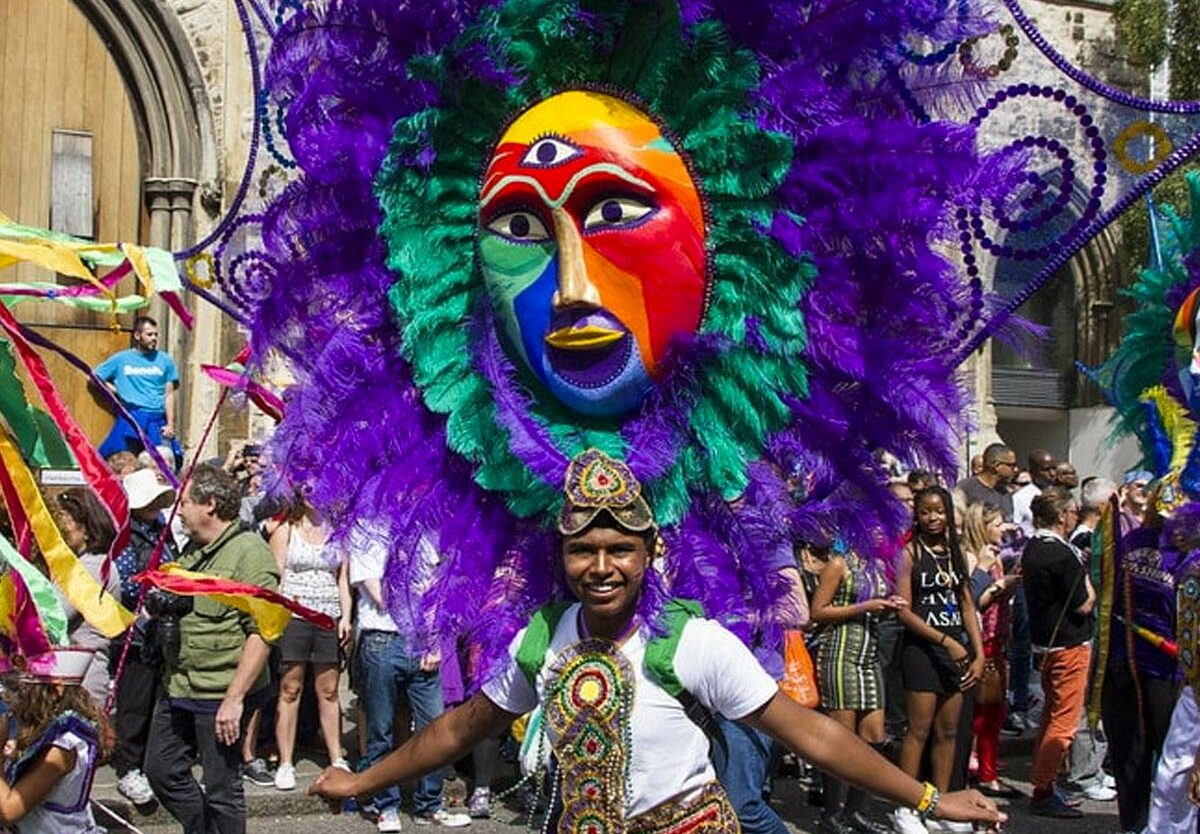The Vibrant Celebrations of Notting Hill Carnival 2023

Introduction
The Notting Hill Carnival, a vibrant and colourful celebration of Caribbean culture, took place over the August Bank Holiday weekend. This iconic event, held annually in the Notting Hill area of London, draws thousands of participants and spectators from diverse backgrounds, showcasing music, dance, and culinary delights. The carnival is not only a celebration of cultural heritage but also an important expression of unity, resilience, and community spirit, particularly in light of the challenges faced by many due to the COVID-19 pandemic.
Main Events and Participants
In 2023, the Notting Hill Carnival returned to its traditional street-style format after having adapted to virtual celebrations during pandemic restrictions. The event featured a parade of vibrant costumes and floats, with over 60 sound systems supplying the infectious rhythms of calypso, soca, reggae, and dancehall music. Participants included local community groups, schools, and international performers, all contributing to the energetic atmosphere that defines the carnival.
This year also saw the introduction of new safety measures to ensure that all attendees could enjoy the festivities safely. The Metropolitan Police were present in adequate numbers to maintain order and assist event-goers, while first aid services were set up proactively across the route. With an estimated attendance of over 1 million people, the event authorities anticipated a booming weekend of fun and excitement.
Cultural Significance and Impact
The Notting Hill Carnival has its roots in the 1960s, originating as a response to racial tensions in the UK and as a celebration of Caribbean culture and identity. It has since evolved into one of Europe’s largest street festivals, highlighting the importance of inclusivity and cultural exchange. This year, various initiatives aimed to educate younger generations about the history of the carnival and the significance of celebrating multiculturalism.
Furthermore, local businesses benefited from the influx of visitors, with many restaurants and shops recording increased sales during the carnival weekend. Community leaders have hailed the event as a critical driver for local economies while promoting diversity and cultural appreciation across the city.
Conclusion
The Notting Hill Carnival remains a beacon of hope and celebration for the community, serving as a reminder of the richness of cultural diversity. As the world continues to navigate the aftermath of global challenges, the return of the carnival signifies resilience and the joy of coming together. Looking ahead, the event is expected to grow even larger, further solidifying its role as a cornerstone of cultural celebration in London. The significance of the Notting Hill Carnival extends far beyond the mere festivities; it fosters understanding, acceptance, and unity among diverse populations.
You may also like

Celebrating Vasant Panchami 2026: Significance and Festivities

Discovering the Beauty and Culture of Norway

Creative Christmas Quiz Ideas for Holiday Celebrations
SEARCH
LAST NEWS
- Remembering Wendy Richard: The Promise to Co-Star Natalie Cassidy
- How Did Anglian Water Achieve an ‘Essentials’ Rating for Mental Health Accessibility?
- Shai Hope Leads West Indies in T20 World Cup Clash Against South Africa
- What We Know About Weston McKennie: Future at Juventus and Past at Leeds
- What We Know About the Upcoming Live Nation Antitrust Trial